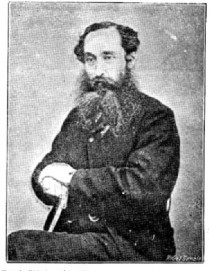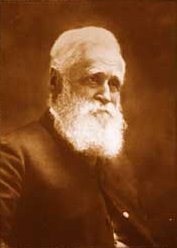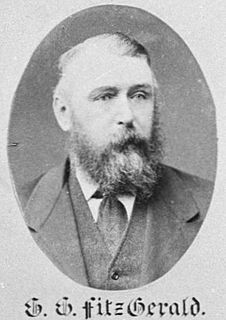Related Research Articles

William Sefton Moorhouse was a British-born New Zealand politician. He was the second Superintendent of Canterbury Province.

The 1866 New Zealand general election was held between 12 February and 6 April to elect 70 MPs to the fourth term of the New Zealand Parliament.

The New Zealand general election of 1871 was held between 14 January and 23 February to elect 78 MPs across 72 electorates to the fifth session of the New Zealand Parliament. 41,527 electors were registered.

Nelson is a New Zealand parliamentary electorate, returning one Member of Parliament to the House of Representatives of New Zealand. From 1853 to 1860, the electorate was called Town of Nelson. From 1860 to 1881, it was City of Nelson. The electorate is the only one that has continuously existed since the 1st Parliament in 1853.
Grey Valley is a former parliamentary electorate in the West Coast region of New Zealand. The electorate was created for the 1871 general election as a single-member electorate, became a two-member electorate for the 1876 general election, and was split between the single-member electorates of Greymouth and Inangahua for the 1881 general election.
Hokitika is a former parliamentary electorate in the West Coast region of New Zealand, based on the town of Hokitika. It existed from 1871 to 1890 and was represented by nine members of parliament. For a time, it was one of the two-member electorates in New Zealand.
Mount Herbert was a former parliamentary electorate in the Canterbury region of New Zealand, from 1866 to 1870.
Westland Boroughs was a parliamentary electorate in the West Coast of New Zealand from 1866 to 1870.
Westland North was a parliamentary electorate on the West Coast of New Zealand from 1868 to 1870.
Westland was a parliamentary electorate in the West Coast of New Zealand from 1866 to 1868 and 1890 to 1972. In 1972 the Tasman and West Coast electorates replaced the former Buller and Westland electorates.
Waimea was a parliamentary electorate in the Nelson Province of New Zealand, from 1853 to 1887. Initially represented by two members, it was a single-member electorate from 1861.

Charles Edward Button was a solicitor, Supreme Court judge, Mayor of Hokitika and later Birkenhead, and an independent conservative Member of Parliament in New Zealand. Born in Tasmania, he came to New Zealand with his wife in 1863. He first lived in Invercargill, then in Westland, and after a brief period in Christchurch, he settled in Auckland. He was an MP for two periods, and when he was first elected to Parliament, he beat his colleague, friend, political opponent and later Premier Richard Seddon; this was the only election defeat ever suffered by Seddon.
The 4th New Zealand Parliament was a term of the Parliament of New Zealand.
William Henry Harrison was a 19th-century journalist from Greymouth who represented two Westland electorates in the New Zealand House of Representatives.
Edmund Barff was a 19th-century Member of Parliament from the West Coast, New Zealand.

Gerard George Fitzgerald was a 19th-century Member of Parliament in New Zealand. Like his brother James FitzGerald, he was a journalist of considerable ability, and co-founded The Southland Times in 1862. For the last 19 years of his life, he was editor of The Timaru Herald.
John White was a 19th-century member of the House of Representatives from the West Coast, New Zealand.
The fifth New Zealand Parliament was a term of the New Zealand Parliament.
The New Zealand Constitution Act 1852 authorised the General Assembly to establish new electoral districts and to alter the boundaries of, or abolish, existing districts whenever this was deemed necessary. The rapid growth of New Zealand's European population in the early years of representative government meant changes to electoral districts were implemented frequently, both at general elections, and on four occasions as supplementary elections within the lifetime of a parliament.

Westland County, also known as County of Westland, was a local government area on the West Coast of New Zealand's South Island. It existed from 1868 to 1873, and then from 1876 until 1989. In its first incarnation it constituted the government for the area that was split from the Canterbury Province, with the West Coast Gold Rush having given the impetus for that split. It had the same administrative powers as a provincial council, but the legislative power rested with Parliament in Wellington. The first Westland County was the predecessor to Westland Province.
References
- Scholefield, Guy (1950) [First ed. published 1913]. New Zealand Parliamentary Record, 1840–1949 (3rd ed.). Wellington: Govt. Printer.